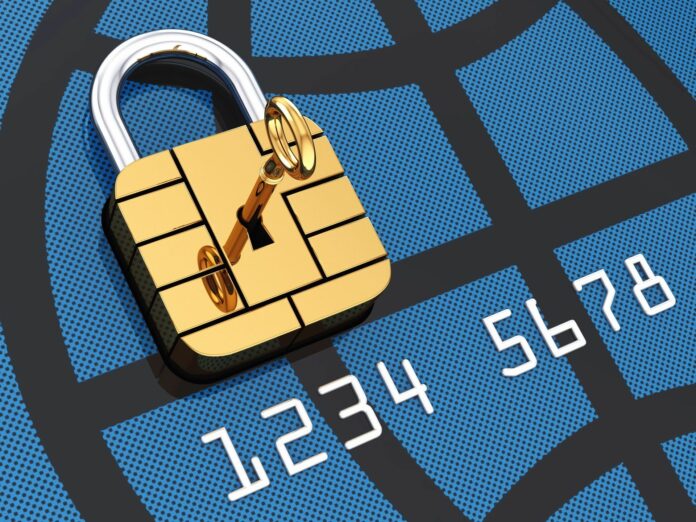Identity theft is growing quickly, and we all know someone that had their identity stolen. The severity of identity theft has been further emphasized by the fact that one million children feel victim to identity theft last year; a concerning figure. When your identity is stolen it can affect you in several different ways-credit, payments and liability. Protecting yourself should now be a way of life, like needing homeowner insurance if you own a home, car insurance, health insurance and now identity insurance. Identity insurance typically costs $10 to $20 per month, many providers with credit monitoring and a million dollars or more to repair and retake your identity. If you are a victim of identity theft and don’t have insurance, it’s going to be difficult to prove to companies that you are now reliable. Whilst trying to resolve this issue, you can use Credit Cards for No Credit to rebuild your credit score as it’s likely the thief would have damaged it considerably. Most of the time, thieves will spend as much money as they can as well as borrow money from other lenders too, leaving you in debt. Questions become: What else I can do and what do I do when my identity has been used?
Identity theft falls into two categories, First Party and Third Party. First Party refers to an individual that provides identification documents with your personal information (i.e. drivers license, medical cards, car registrations, credit cards, etc.) directly, impersonating your identity. Third Party is typically over the internet or phone where the person’s stolen identity can easily be provided.
Things you need to know, and actions you need to take will be clear as we walk through several real-world stories.
David starts to receive letters declaring medical and auto claims for his most recent car accident in Los Angeles, CA. Of course, this was not David-who lives and was in Tennessee at the time of the accident. This is First Party-Liability which required two lawyers, almost a year and about $5,000 out of his pocket in expenses to resolve.
Mike had his credit card read, duplicated and used in retail shops amounting to $5,000 before the credit card company cut it off, First Party-Credit. Fortunately for Mike, his card vendor covered this type of loss and Mike simply had to declare it wasn’t him making the purchases and was issued a new card.
Beverly had her social security checks redirected (change of address) by an on-line user who had Beverly’s identity. Beverly, after realizing her checks had stopped coming, called the Social Security office which later lead to a face-to-face meeting. The result of the meeting led her to the local police department to file an identity theft report. This report was then returned to the Social Security office and the payments were stopped until an internal investigation could be completed; Third Party-Payment theft.
Jessica and Mary had their identity stolen and used to open new credit card accounts (i.e. Nordstrom, Macy’s, Costco, PayPal and more); Third Party-Credit. Both events were revealed when they got U.S. Mail letters a week or so after the accounts were opened or declined. It has become good practice to send both email and hard copy in case email addresses where changed. Neither one received any emails. Resolution required a process of filing with the local police department an identity theft report. Fortunately, the credit was not used and the accounts were flagged immediately after all the credit providers where notified.
The hard copy notification saved Jessica and Mary, but the bad actors are always ahead of the game. If you receive one of these letters, it may be a phishing scam. People are now receiving these letters with instructions to call the number if there is a problem. They present themselves as third party administrators for the credit applied and take all your personal information-in effect, stealing it first-hand. Call the store or service directly and report the letter, do not call the number on the letter. The real service may ask you to produce a photo ID as proof of identification, and in some extreme cases, they may accept alternative forms of identification such as ID God photo IDs, with additional information as proof of your identity.
Now, how to protect yourself. If in the future you are a victim of these crimes, the first thing you need to do is contact all bank accounts and tell them the situation. You then need to do a quick search engine search for “an identity theft lawyer near me” and get a lawyer on your case. If a friend or family member has been through this, they may be able to recommend a lawyer to you. Having a professional on the case can help prove your innocence and may also help find the people who did the damage. However, some preventative measures can also be put in place to help protect you. These actions are for individuals, not married couples, unless explicitly engaged. There are programs that include children and should be activated. According to the FBI, the fastest-growing target is underage children. IBM Security Reports conducted by Ponemon Institute LLC, indicate retail credit usage remains a leader in identity theft. Opening credit cards in your name with quick charges and then dumping them is what happens. The first thing you can do to protect yourself is Freeze Your Credit!
Economic Growth, Regulatory Relief, and Consumer Protection Act of 2018 provides for individuals to Freeze or Lock access to your individual credit report. By securing your credit report you’ve stopped bad actors from opening credit cards, bank loans, mortgages, auto loans, cash advances and so on. Securing your credit does not cost you anything, but you must do it with three service bureaus:
- Equifax: Freeze Your Equifax Credit Report, 1-800-685-1111 (NY residents 1-800-349-9960).
- Experian: Freeze Your Experian Credit Report, 1-888-397-3742.
- TransUnion: Freeze Your TransUnion Credit Report, 1-888-909-8872.
I strongly suggest you first obtain a copy of your most current credit reports from all three bureaus. The bureaus, to verify your identity, will ask you financial questions where all the answers come from your credit reports that they possess.
The next action is to secure Identity Insurance if you want to cover out of pocket expenses to resolve the theft. These policies cover items such as processing, credit reports, medical records, travel, childcare, accounting, lost wages, investigators, legal defense fees, bank account, credit card and unauthorized electronic fund transfer theft.
Identity theft is directly related to Data Breaches and will continue for the foreseeable future. Therefore, it is highly recommended to protect you and your family’s identity no matter their ages, young and old, simply because. By the way, the stories above were about myself, my wife, daughter, sister and brother in-law. Everybody knows someone. Stay tuned. Coming soon, IOTA-the Breach Killer.




























